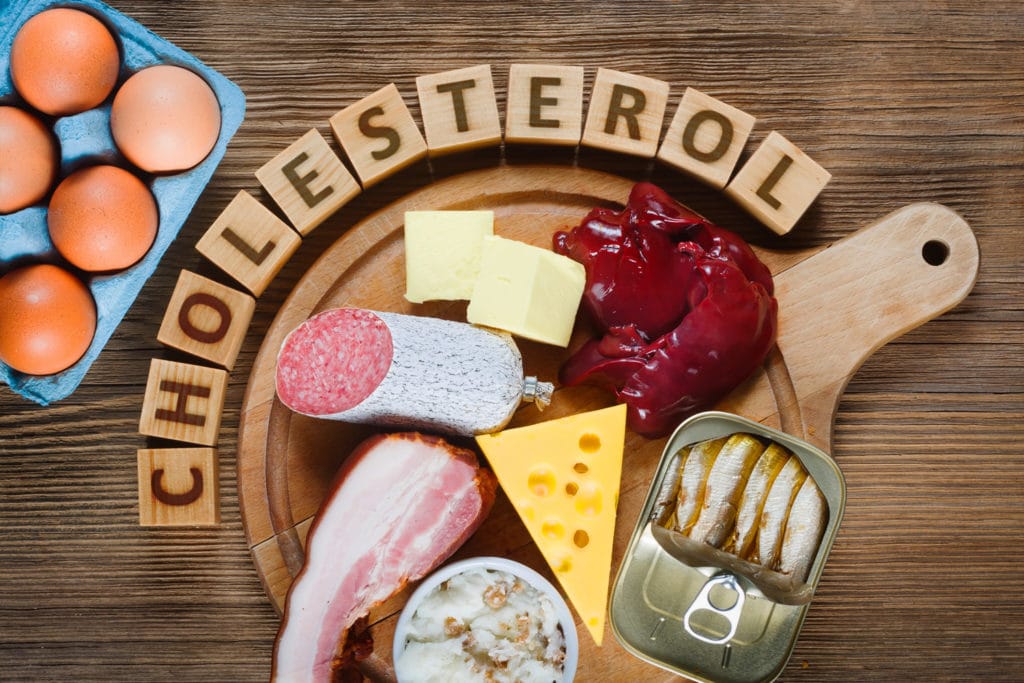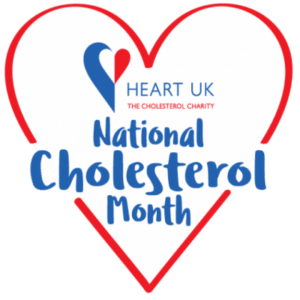October 1, 2019


The moment you mention cholesterol to anyone, the first response is often along the lines of how much they miss butter or yearn for a boiled egg. For the last forty or so years, we have been bombarded by the food industry to believe low fat is good and cholesterol in any form is a big dietary no! Current thinking is that maybe some of the ideas are a little outdated and that natural fats and eggs are not the dietary villains we may have thought.
Current thinking is that maybe some of the ideas are a little outdated and that natural fats and eggs are not the dietary villains we may have thought.
There is plenty of research that shows us that an excessively high cholesterol level can increase our risk of heart problems and clogged arteries. Atorvastatin was the most prescribed drug in the UK in 2018 and there are suggestions that anyone over 45 should be given them as a preventative measure. But should we all routinely take medication to manage cholesterol? Can we sort it via our diet and lifestyle or with supplements? Should our aim be a no cholesterol diet? Is cholesterol really the nutritional demon that the media would have us believe?
Firstly, some good news. Not all cholesterol is bad, in fact it is essential for life and our body will manufacture it if we are not consuming any. Secondly, good diet and a healthy lifestyle can make a difference, especially if you look at taking the right supplements too.
A good diet and a healthy lifestyle can make a difference, especially if you look at taking the right supplements too.
Cholesterol is a waxy whitish-yellow fat that is vital to your health and wellbeing. Excess cholesterol in the bloodstream is well known as the key contributor to the plaque that clogs our arteries, but it is also used as a building block for cell membranes and to manufacture Vitamin D, some hormones and bile acids to help dissolve fats.
If you have a cholesterol test, it is important to discover what is being looked at. Cholesterol appears in various forms in our bodies, so it helps to know which ones are which and what your result means.
Low density lipoprotein (LDL) and Very low density lipoprotein (VLDL) are considered the ‘bad’ forms of cholesterol and too high a level of these can lead to fatty build ups in the arteries and in turn to atherosclerosis and other health conditions.
High density lipoprotein (HDL) is classed as ‘good’ cholesterol as it circulates freely in the body and is used by the body for a number of processes.
The other level that is also measured is your triglyceride level. Triglycerides are a fatty substance similar too cholesterol, too much can again leave you at risk of hear health issues. Triglycerides are mainly manufactured from the food we eat, so adopting a healthy diet can contribute to healthy levels.
Ideally you will have a higher level of HDL over LDL or VLDL and a lower level of triglycerides. This ensure that you are looking after your heart and circulatory health, but also providing the body with the ‘good’ cholesterol that the body needs for function and repair.
We are bombarded with dietary advice from every angle, but there is ever increasing evidence that the Mediterranean style of diet is good for us on many levels and for many health conditions. There is plenty in it to make it a recommended diet for helping to maintain a healthy cholesterol level too. Plenty of fresh fruit and vegetables, healthy plant oils, seeds and nuts, oily fish and moderate amounts of lean meat.
There is ever increasing evidence that the Mediterranean style of diet is good for us on many levels and for many health conditions.
Aiming for an increasing number of plan- based meals through the week is a simple way of reducing your saturated fat intake, so naturally helping to reduce the amount of cholesterol forming fats that you are ingesting. Research such as this trial in the Journal of the American Heart Association, is finding that a reduction in animal proteins and an increase in plant based foods is a positive step in the direction of cardiovascular health. They discovered that those with a mainly plant based diet had 32% lower risk of dying from a cardiovascular disease and a 25% lower risk of dying from any cause when compared with those who ate the least amount of plant-based foods.
The good news is that there is plenty! Regular exercise not only supports your circulation, it can also help you maintain a healthy weight which is generally good for your cardiovascular health. Research is also indicating that there are plenty of natural supplements that can also be used as part of a healthy wellness programme.
Many supplements are well known for helping us keep a healthy level of fats in the blood, most people are aware of the benefits of fish oils providing the essential fatty acids, EPA and DHA. Vegan sources are now available by using certain types of lichen and these can be taken regularly.
Plant based antioxidants such as resveratrol from red grapes—yes, the substance that is present in red wine and believed to have heart health benefits—plus astaxanthin, an antioxidant-rich algae are easily obtainable as supplements. They can be added to a daily routine of a multivitamin and mineral, essential fatty acid supplement as part of a nutritional programme.
Co enzyme Q 10 is another well researched compound, it is often used as an antioxidant supplement and has been shown to be beneficial to people that are routinely taking medication such as statins.
Red Rice Yeast is an interesting supplement that has a similar action to statins, so worth considering if you are looking for a natural alternative. It is an extract from red rice that has been fermented with the yeast Monascus purpureus. This process creates a unique compound that has been used in China for thousands of years. Look for one such as AOR’s Red Yeast Rice with Ankascin 568-R is the world’s first red yeast rice that doesn’t contain monacolin K or citrinin ensuring a pure product.
Plant base antioxidants along with supplements such as Red Rice Yeast and Co Q 10 can be used as part of a healthy heart nutritional plan.
If you like a cup of Earl Grey tea, you will be familiar with the herb Bergamot, it not only makes a fragrant tea, it also has health benefits of its own. Bergamot contains a high concentrated flavonoid profile, these act like antioxidants in the body. As a supplement it is ideal to take alongside fish oils, garlic and lecithin.
Being aware of your cholesterol levels is no bad thing but remember there is plenty you can do that will help maintain healthy levels with a good diet and an informed choice of supplements.
Back to Blog